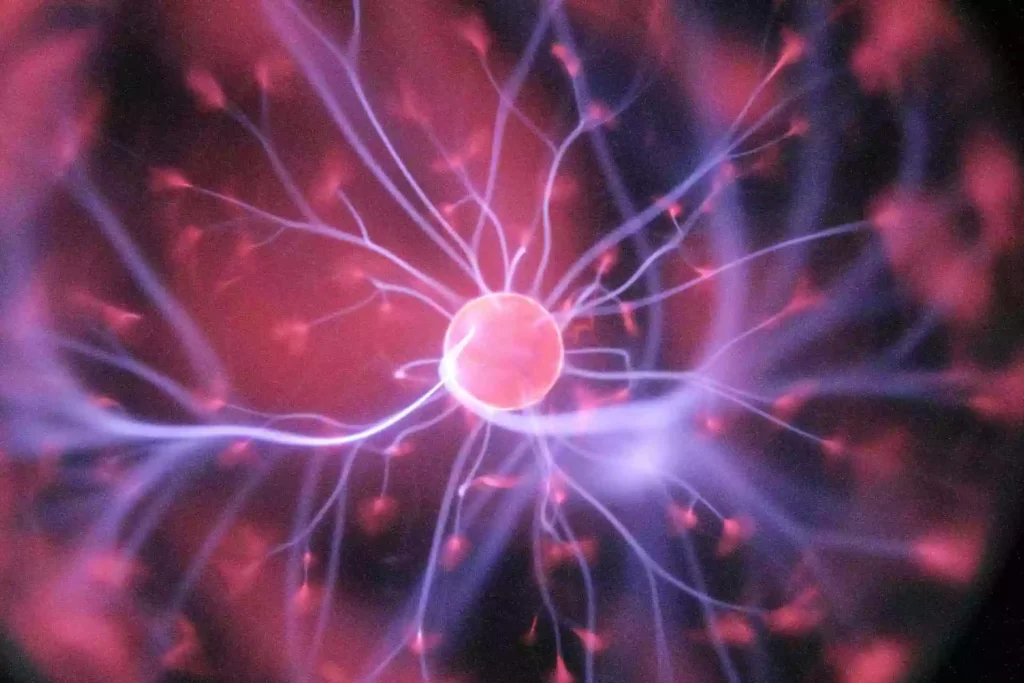Find Your Purpose

Finding one’s purpose in life is like having a compass built into yourself. It always knows the way home and it helps center you and find the best path to your goal while keeping everything aligned to your purpose. It is what you live for. It’s how you make decisions. To find your purpose you need to know your true, authentic self, what you like, what you’re good at, what brings you joy, what’s important to you, what you want to accomplish. Not many people know the answers to these questions. As your Life Coach I would guide you on a journey of self-discovery and exploration to clarify your answers to these and many more questions. You will gain insights into yourself you never knew before. Your self- awareness and self-reflection will grow to a point beyond your expectations. You will learn how to search inward for all your answers and you will be guided by your inner compass to make decisions and take action that is aligned with your purpose. This will lead to a purpose-driven life where you will find deeper meaning, joy, and fulfillment.

STEPPING STONES TO PURPOSE
When developing or discovering your purpose these are some areas we will look at to draw from to uncover your purpose.
1) CHILDHOOD INFLUENCES: You will examine your childhood influences and the roles you learned to play on the stage of life.
2) PASSIONS AND INTERESTS: You will explore what you have been passionate about, both as a child and an adult, as well as how to “find your passion” by developing your interests.
3) TALENTS AND SKILLS: You will explore your natural gifts as well as the skills you’ve acquired over your lifetimes that have uniquely prepared you to reach your potential.
4) PERSONALITY: You will explore your natural inclinations, temperament, and preferences to help identify for what you are best suited.
5) LIFE CHANGING EXPERIENCES: You will reflect on your life-changing experiences and turning points that lead you down your life path.
6) COINCIDENCES: Also referred to as synchronicities, you will identify meaningful coincidences that were pivotal moments that point to higher meaning.
7) ELIMINATING LIMITATIONS: You will banish limiting beliefs and remove any final obstacles from your path.
8) YOUR PURPOSE: You will put the pieces together and see what trajectory your steppingstones have created and where they are leading you.
9) MANIFESTO: You will create a declaration that expresses your values, beliefs and life purpose in one inspirational, powerful paragraph.
10) LIFE STORY: You will rewrite the story you tell of who you are and what you’re on this Earth to do, based on your newfound clarity of how everything in your life has been leading you to be perfectly suited to fulfill your unique purpose.
Transformation is the process of going through positive lasting change. There are many areas of your life you can choose to transform. Whatever areas you may be interested in improving the following is the process you will go through.
THE TRANSFORMATION PROCESS
- Clarity of Intention – What life situations are driving you to change?
- Understanding Needs – Where are you at in the journey?
- Commitment to the Journey – See possibilities of success and find blessings and meaning in the pain.
- Clarity of Desire – What do you really want and Why?
- Reassessing Identity – Discovering who you are and who you want to be?
- Transformation – Areas for Transformation:
- Career
- Health
- Money
- Significant Other/Romance
- Friends and Family
- Fun and Recreation
- Personal Growth
- Physical Environment
- Setting Achievable Goals – Long term vision and short term action steps

Choose to Transform Today!
I would be honored if you chose me as your life coach. All queries are replied within 24hrs.

The 6 Human Needs
(How well are these needs being met in your life? Which need is most important to you?)
Certainty/Comfort
Uncertainty/Variety
Significance
Love & Connection
Growth
Contribution
The first 4 needs are called needs of the personality. These needs are vital and we find a way to meet these needs.
The last 2 needs are called needs of the spirit and are not always met.
The first 4 needs must be met before we can work on the last 2 needs.
The Bateson and Dilts Logical Levels, From Low to High:
Environment: external possibilities or limitations: where, when and with whom? Environment is about the external conditions in which behaviour takes place, and in which we operate.
Behavior: specific actions or reactions: what (are you doing well)? Behaviour is actions and reactions by an individual within the environment.
Abilities, or knowledge and skills: how? Competences drive behaviour through a personal strategy, involving skills and their development
Beliefs and Values: Reinforcement, Motivation and Consent: Why? It is about the reasons behind the behaviour, including any underlying values. Beliefs and values can either reinforce or undermine capabilities.
Identity: feeling of ourselves: who Identity is about ‘who’ you are, and could also be considered as the sense of self.
The mission or purpose: what does it mean, for what, and for whom? This might be thought of as a step beyond the others. It is about ‘what else’, beyond the individual, and related to being part of a bigger system, whether that be family, community or beyond. Some people describe this as the ‘wisdom’ level.
As a Life Coach I work through all these levels with you to not only be aware of these levels but to make sure all areas are in alignment to your true self and desires and goals. That is to say that all aspects of your life are working together to achieve your goals and dreams.

Know Yourself
What are Your Personality Styles?
Its important to know yourself and what personality styles you prefer. However, you can learn, develop, and cultivate balance. Life Coaching can help! Call now.
1. Energy Source:
Extroverts | Introverts |
Express their thoughts readily | Reflect in silence |
Think in public | Think first and speak out afterwards |
Action oriented | Reflect more before acting |
Like social gatherings | Often prefer smaller gatherings or one-to-ones |
2. Thinking Style:
Structured Approach | Emerging Approach |
Planned, structured | Spontaneous, flexible |
Systematic and methodical | Creative approach to work |
Goal oriented | Goal can be modified |
Prefer to finish things | Prefer options until the last minute |
3. Decision Making:
Detail Oriented | Big Picture Oriented |
Good at analytical, sequential, and logical thinking | Good at lateral, holistic, systemic thinking |
Focus on the challenges of the present | Focus on future oriented solutions |
Focus on what is real | Focus on patterns |
Understand ideas and theories through practical applications | Want to clarify ideas and theories before putting them into practice |
4. Working Style:
Fact Oriented | Value/People Oriented |
Analytical | Empathetic, holistic |
Strong belief in logic | Strong internal value system |
Focus on the internal consistency of an approach first | Consider the impact of a decision on people first |
Objectivity | Do not believe in objectivity as a guiding principle |
5. Emotions & Reactions
Immune | Excitable |
Weak response to external stimuli | Strong response to external stimuli |
Limited emotional variety | Wider emotional variety |
Calm | Enthusiastic |
Even tempered | Higher variation in temper |
What to Expect From a Life Coaching Session With Me
| Elements of a Life Coaching Session |
|---|
| Non-judgment |
| Active Listening |
| Effective questioning |
| Appropriate challenges |
| Confidentiality |
| Compassion |
| Goal setting strategies |
| Accountability |
| Rapport building |
| Insights/Guidance |
| Action Steps |
| Willingness to grow |
| Conversation/Stories |
NEUROPLASTICITY, THE BRAIN AND CHANGE
Neuroplasticity is the brain’s ability to change and adapt based on experiences. Improving ones neuroplasticity can sharpen memory, concentration, and cognitive skills. It can help address anxiety and depression. One of the methods I utilize in my coaching, among others, is the science of Neuroplasticity to make lasting progress in our lives. The neural pathways and networks created by doing tasks over and over can be reorganized both in structure and function. We can therefore rewire patterns in our brain and create new networks to improve well-being. Our neural networks are either getting stronger or weaker. Old synapses which are the spaces between neurons that are no longer being used are eliminated during synaptic pruning. This is similar to if you don’t use it you lose it. Lets say you’re a whiz at typing and you don’t have to look at the keys to type. You have developed these neural pathways associated with typing that are so strong typing is second nature to you. You hardly have to think about it. But try something new for the first time and it will be more difficult because those neural networks have not been established.
BENEFITS OF NEUROPLASTICITY
1. Helps us learn new things
2. Helps with depression and anxiety
3. Helps us engage in activities more thoughtfully
4. Aids recovery from stroke and other traumatic brain injuries
5. Ability to enhance cognitive abilities
6. Can help us break bad habits or develop good habits


During our Life Coaching sessions we will also dive deeply into these categories and align them to your purpose and goals.
Choose to Transform Today!
I would be honored if you chose me as your life coach. All queries are replied within 24hrs.
Weekly Newsletter
Get my tips directly into your inbox.
Every Monday get a free tip!


